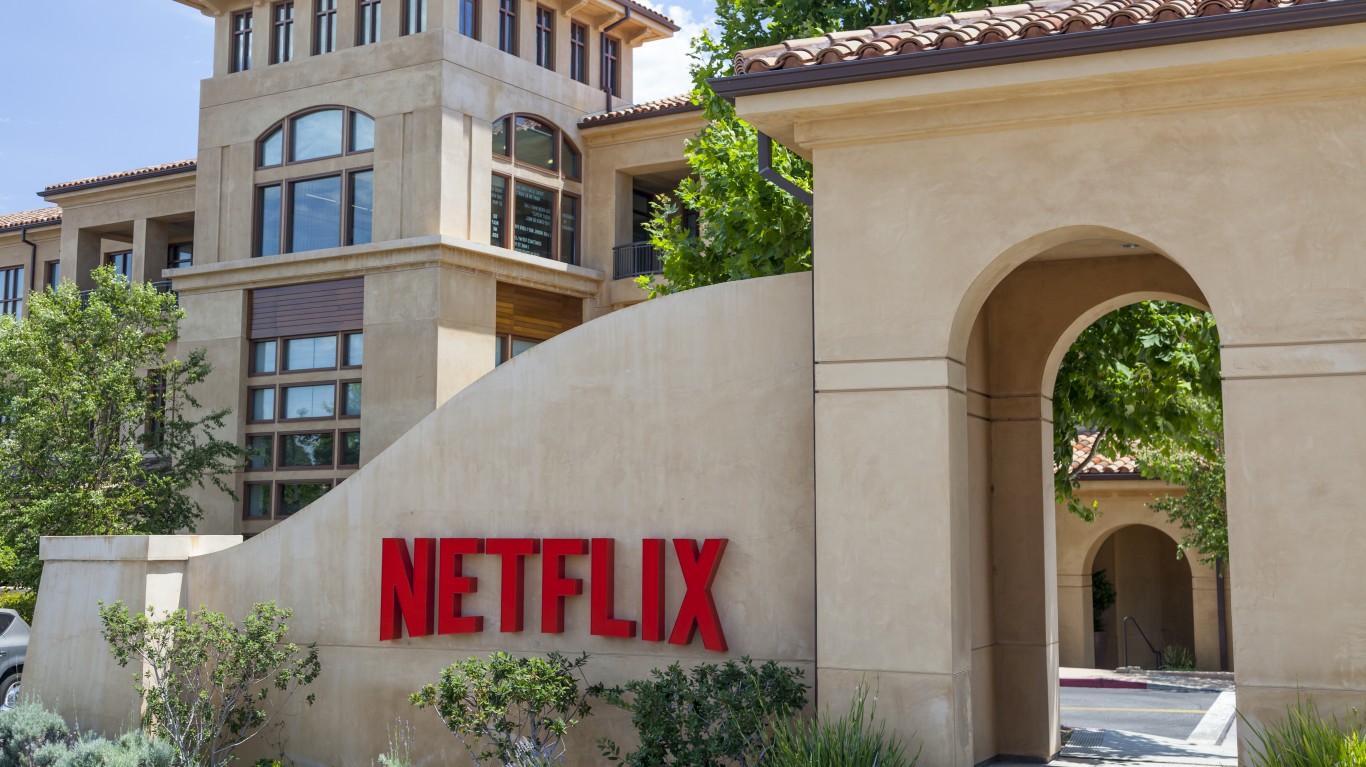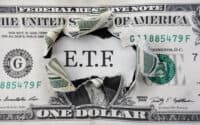The average American spends about 13 minutes a day preparing and eating breakfast, the meal nutritionists consider to be the most important of the day, according to NPD Group. Increasingly, people are eating less cold cereal, which has been part of breakfast for more than 100 years.
Sales of ready-to-eat cereals fell 2.55% in the 52 weeks ending April 17 to $6.41 billion, according to data from Symphony/IRI which covers retail outlets such as supermarkets. Sales of cheap, private label cereals dropped 7.2% to $637. 5 million during that same time frame. Sales and units shipped have been lackluster since at least 2007, predating the Global Recession and the recent rise in grain prices. This represents a change in fortunes for Kellogg Co. (NYSE:K), General Mills Inc. (NYSE:GIS) Ralcorp Holdings Inc. (NYSE:RAH), parent of Post, and Quaker Oats owner PepsiCo Inc. (NYSE:PEP).
Six cereal brands have been hit particularly hard by American’s changing breakfast tastes. These include Kellogg’s Corn Flakes, Cheerios, Raisin Bran, Rice Krispies, Corn Pops, and Special K. Sales of some of these brands fell by double digits between 2007 to 2010, and those declines have continued in the most recent period measured by Symphony/IRI.
“In the 1980s and the first half of the 1990’s, the RTE (ready-to-eat) cereal industry was one of the most profitable of all food manufacturing industries, with profits averaging 17 percent of sales,” according to a 2000 report from the USDA. “Consumers’ consumption of RTE cereals declined in the early 1990’s because of the high prices of name-brand cereals and the rising popularity of convenient breakfast foods such as bagels and toaster pastries.”
These struggles continue.
Indeed, Dean Foods Co. (NYSE:DF) CEO Gregg Engles recently blamed “soft” milk sales partly on a “a weak cereal category, which drives roughly 30% of milk use.” The company is the largest U.S. processor and distributor of milk.
Cereal would seem like one of the most recession-resistant meals because it’s fairly cheap and easy to prepare. S&P equity analyst Mark Graves, for one, said he was surprised by the softness in sales which he doesn’t believe is attributable much to restrictions on marketing food to children that the food industry implemented several years ago. Volume and sales should remain soft for at least the rest of the year, he added.
“I would expect cereal to be doing better,” he says.
Cereal is under assault from many quarters. Government officials want to further restrict the use of cartoon characters such as Toucan Sam to sell sugary cereals because of concerns about soaring rates of childhood obesity. Companies have been reducing the amount of sugar in their products. They are also selling them in other ways such as breakfast bars, sales of which are soaring.
Much to the horror of nutritionists, the popularity of egg-based breakfast sandwiches is surging. It remains unclear how much this eats into cereal sales, however, since some people apparently eat a small breakfast at home and eat a “snack” like an Egg McMuffin later in the morning. What it does illustrate is the power of a convenient food item to drive sales at restaurants, which have seen breakfast sales remain strong throughout the economic downturn.
“The easiest way to prepare that meal is a power window,” says Harry Balzer, chief industry analyst with NPD Group, in an interview.
When 24/7 Wall St. decided to compile a list of the cereals with the weakest sales growth, it found a few bright spots. General Mills, for instance, has a hit with Multi-Grain Cheerios. Symphony/IRI estimates that sales of the healthy cereal rose to 11.62% to $107.4 million in the recent 52 week period, the biggest gain of any ready-to-eat cereal listed by the market research firm. Another General Mills product, Cinnamon Toast Crunch, gained 7.5% to $196.9 million. Both products have seen gains for the past few years. Sales at the diversified food company’s Retail Business, which includes cereal, are struggling. Net sales and operating profit fell by more than 1% each. A General Mills spokesperson said the company was in an earnings quiet period and was unable to comment for this story.
Kellogg, the largest cereal company, isn’t faring as well. Kellogg’s Frosted Flakes, for instance, rose 1% it $246.7 million in the 52 weeks ending April 17, while sales of such stalwarts as Fruit Loops, Raisin Bran and Special K fell in the single digits. Sales of Kellogg’s Corn Pops dropped 19% to $73.9 million. Kris Charles, a spokeswoman for Battle Creek, Michigan-based Kellogg, told 24/7 Wall Street that the Symphony/IRI data is misleading because it does not include its biggest customer, Walmart, or club stores such as Costco.
“Ready-to-eat cereal is a robust category; it’s trusted by moms, great tasting, nutritious, convenient and on trend,” she writes in an email, adding that ready-to-eat cereal accounts for about 50% of global net sales as it has for several years. When Kellogg reported first quarter earnings on May 4, 2011, the company increased its full-year 2011 internal net sales growth guidance to approximately 4 percent.” She did not mention that Kellogg’s earnings missed Wall Street estimates.
Indeed, many investors are bullish on the cereal makers, though not necessarily the product itself. Shares of Kellogg are up about 11% this year, as is General Mills. Ralcorp, which also makes private label cereals, is up 35% during the same time, buoyed by an unsolicited takeover bid from ConAgra Foods Inc. (NYSE:CAG) It acquired Post from Kraft Foods for $2.6 billion in 2007 and the business is under-performing. Sales of branded cereal fell 10% during the most recent quarter, the only Ralcorp business to do so. Volumes were off 14%. The unit, Ralcorp’s most profitable, saw a 1% gain in segment profit because of cost cutting.
Post Honey Bunches of Oats, one of its flagship brands, fell 11.69% to $271.2 million in the April 52 week period, Symphony/IRI says. St. Louis-based Ralcorp said during its recent earnings conference call that sales of the product “grew revenue” by 8% in the quarter. A company spokesperson could not be reached for comment on the discrepancy. It plans to continue to improve its product pipeline.
These are 24/7 Wall St. Breakfast Cereals Americans No Longer Love.
6. Corn Flakes
> Company: Kellogg
> Year Introduced: 1894
> 52-Week Sales Through April: $107.5 million
> Pct. Change During That Period: -5.86%
> Pct. Change Sales 2007-2010: -3.8%
Originally developed in 1894 by Dr. John Harvey Kellogg, the superintendent of the Battle Creek Sanitarium, as a way to promote the benefits of a vegetarian diet. It’s an American classic like apple pie that is facing hard times because of the growth of private label brands. Also, it’s being undermined by newer organic brands.
5. Cheerios
> Company: General Mills
> Year Introduced: 1941
> 52-Week Sales Through April: $282.9 million
> Pct. Change During That Period: -3.86%
> Pct. Change Sales 2007-2010: -6.9%
Cheerios has been the part of the diets of babies and toddlers for generations. Birth rates have fallen, however, as the economy went south. Moreover, the market for healthy cereals has exploded in recent years, further pressuring the venerable brand.
4. Raisin Bran
> Company: Kellogg
> Year Introduced: 1926
> 52-Week Sales Through April: $115.1 million
> Pct. Change During That Period: -8.4%
> Pct. Change Sales 2007-2010: -7.9%
Raisin Bran is the victim of its own success, which has spawned legions of knock-off brands. Many of them are made by private label makers and sold for a fraction of the cost of the real thing. Cash-strapped consumers probably can’t tell the difference.
3. Rice Krispies
> Company: Kellogg
> Year Introduced: 1928
> 52-Week Sales Through April: $121.5 million
> Pct. Change During That Period: -8.7%
> Pct. Change Sales 2007-2010: -10.3%
Snap, Crackle and Pop are among the most recognized brand icons in history. The product has morphed from a health food to a snack food product. It’s kind of tough to argue that something that’s an ingredient in delicious snacks is healthy.
2. Corn Pops
> Company: Kellogg
> Year Introduced: 1951
> 52-Week Sales Through April: $73.8 million
> Pct. Change During That Period: -19%
> Pct. Change Sales 2007-2010: -12.8%
Corn Pops are a tough sell these days. Parents — smart ones anyway — are not thrilled if their children ingest sugary cereals. Adults don’t want them either because they are not healthy with 117 calories and 14.8 grams of sugar.
1. Special K
> Company: Kellogg
> Year Introduced: 1956
> 52-Week Sales Through April: $88.9 million
> Pct. Change During That Period: -1.4%
> Pct. Change Sales 2007-2010: -15.9%
One of the first diet foods. It’s still a good way to start your day on the right track — nutritionally speaking. Too bad that it is elbowing for attention in a very crowded market.
–Jonathan Berr
Is Your Money Earning the Best Possible Rate? (Sponsor)
Let’s face it: If your money is just sitting in a checking account, you’re losing value every single day. With most checking accounts offering little to no interest, the cash you worked so hard to save is gradually being eroded by inflation.
However, by moving that money into a high-yield savings account, you can put your cash to work, growing steadily with little to no effort on your part. In just a few clicks, you can set up a high-yield savings account and start earning interest immediately.
There are plenty of reputable banks and online platforms that offer competitive rates, and many of them come with zero fees and no minimum balance requirements. Click here to see if you’re earning the best possible rate on your money!
Thank you for reading! Have some feedback for us?
Contact the 24/7 Wall St. editorial team.



